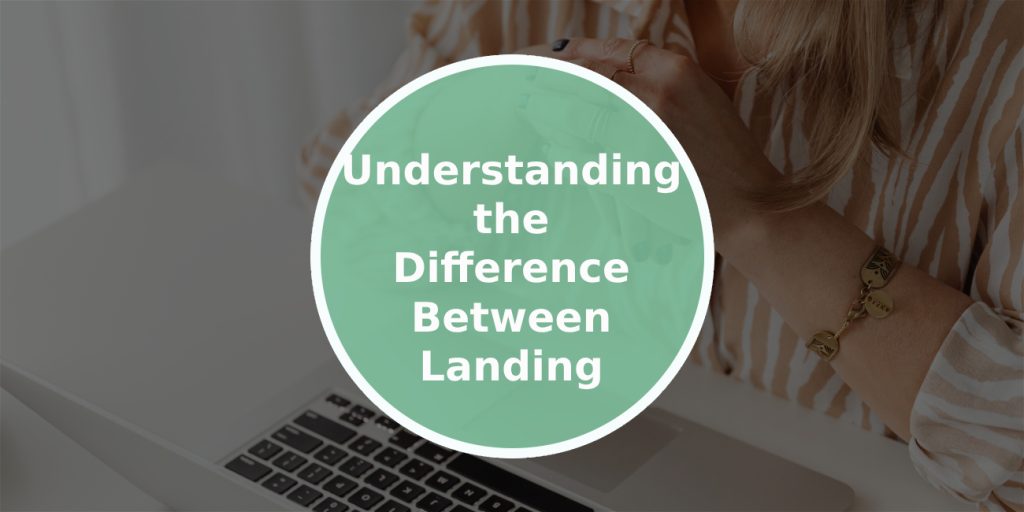In the world of online marketing and web development, understanding the distinction between landing pages and website pages is crucial for creating effective digital strategies. Both serve unique purposes and play distinct roles in engaging and converting visitors. Whether you’re a business owner seeking a skilled web developer for your projects or a developer looking to enhance your online visibility, understanding the nuanced roles of landing pages and website pages is essential to making informed decisions and achieving success in the dynamic realms of online marketing and web development.
In this comprehensive guide, we’ll delve into the key differences between landing pages and website pages, their respective functions, and how to leverage them effectively in your online presence.
Landing Pages: Precision in Conversion
Definition of Landing Pages
A landing page is a standalone web page created with the specific purpose of converting visitors into leads or customers. It is designed to be the destination where users “land” after clicking on an online ad, social media post, email link, or other marketing channels.
Key Characteristics of Landing Pages
1. Focused Objective:The primary goal of a landing page is to drive a specific action, such as filling out a lead capture form, signing up for a newsletter, downloading an eBook, or making a purchase.
2. Simplicity and Clarity: Landing pages are often stripped of distractions like navigation menus, links to other pages, and excessive content. They are laser-focused on delivering a concise message and compelling call-to-action.
3. Minimalist Design: Effective landing pages are designed with clean, visually appealing layouts that guide the visitor’s attention towards the desired action.
4. Clear Value Proposition: A landing page must communicate the value or benefits of taking the desired action. This helps to convince visitors that it’s worth their time and information.
5. A/B Testing and Optimization: Marketers often perform A/B testing on landing pages to refine elements like headlines, images, form fields, and calls-to-action for optimal performance, ensuring they result in optimized landing pages that drive better conversion rates.
6. Analytics Integration: Landing pages are typically integrated with analytics tools to track performance metrics like conversion rates, bounce rates, and user behavior.
Use Cases for Landing Pages
1. Lead Generation: Capturing contact information for follow-up digital marketing efforts, like email campaigns or sales calls.
2. Promoting Webinars or Events: Convincing visitors to register for upcoming online or in-person events.
3. Product Launches: Introducing a new product or service and encouraging immediate action from interested prospects.
4. Offering Downloads: Providing valuable resources like eBooks, whitepapers, or templates in exchange for contact information.
5. E-commerce Transactions: Driving sales by presenting a specific product or offer to potential buyers.
Website Pages: Comprehensive Brand Experience
Definition of Website Pages
A website page, on the other hand, refers to any individual page within a website, such as the homepage, about page, services or product pages, blog posts, and contact pages. These collectively form a website’s architecture.
Key Characteristics of Website Pages
1. Navigation and Exploration: Website pages are designed to offer a comprehensive experience. They typically include navigation menus that allow visitors to explore different sections of the site.
2. Diverse Content: Website pages can feature a wide range of content types, including text, images, videos, interactive elements, and more.
3. Brand Representation: They serve as a platform for showcasing a brand’s identity, values, mission, and overall message. The overall design and content reflect the brand’s image.
4. SEO and Organic Traffic: Website pages are optimized for search engines to improve their visibility in search results. They contribute to the overall SEO strategy of the website.
5. Comprehensive Information: They provide detailed information about various aspects of a business, such as products, services, company history, team members, and more.
6. Engagement and Interactivity: Website pages often include interactive elements like contact forms, social media feeds, comment sections, and other features that encourage visitor engagement.
Use Cases for Website Pages
1. About Us Page: Offering insight into the company’s history, mission, values, and team members.
2. Product or Service Pages: Providing detailed information about offerings, including features, benefits, pricing, and specifications.
3. Blog or Content Pages: Publishing articles, blog posts, videos, or other forms of content that educate, inform, and engage the audience.
4. Contact Page: Offering various ways for visitors to get in touch, such as forms, phone numbers, emails, and office addresses.
5. Portfolio or Case Studies: Showcasing previous work, projects, or success stories to demonstrate expertise and build trust.
Both landing pages and website pages are integral components of a comprehensive online presence. While landing pages focus on conversion and driving specific actions, website pages provide a broader brand experience and a wealth of information. By understanding their distinct purposes and characteristics, businesses can leverage these pages effectively to engage and convert visitors, ultimately driving success in the digital realm. A well-rounded digital strategy often combines the precision of landing pages with the comprehensive brand representation offered by website pages for optimal results.
